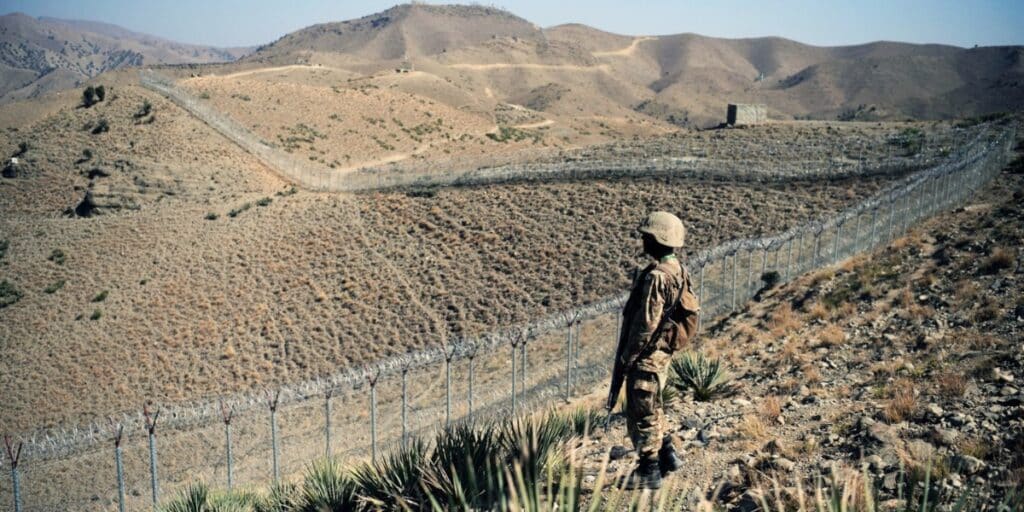Islamabad: Defense Minister Khawaja Asif has stated that there are no longer any diplomatic ties between Pakistan and Afghanistan following the recent unprovoked attack from the Afghan side along the Pak-Afghan border.
Speaking on Geo News program , he said that currently, the situation is in a state of stagnation — while no active clashes are taking place, tensions remain high.
The minister clarified that at present, there are “no direct or indirect contacts” with Afghanistan.
Khawaja Asif further warned that hostilities between the two neighboring countries could reignite at any time, emphasizing that although there is temporary calm, the possibility of renewed conflict cannot be ruled out.
It is worth noting that the recent clashes between Pakistan and Afghanistan erupted after Afghan security forces launched an attack on Pakistani border areas.
The Pakistani armed forces gave a strong and decisive response to the Afghan aggression, killing around 200 Afghan militants.
In the operation, Pakistani security forces also took control of 21 Taliban posts along the border.
Pakistan has also urged the Afghan government to take decisive action against all Indian-sponsored militant groups operating within its territory and to ensure that such elements are not allowed to use Afghan soil to carry out attacks inside Pakistan.
Pakistan has maintained a clear stance that Indian-sponsored militants are operating from Afghan territory, targeting not only security forces but also innocent civilians in Khyber Pakhtunkhwa and Balochistan.
Pakistan has reiterated that it will not tolerate any form of militancy or cross-border terrorism originating from Afghan soil.
It is noteworthy that the Afghan security forces launched their attack on Pakistani territory at a time when the Afghan foreign minister was on an official visit to India.
ALSO READ: Trump vows to Pakistan-Afghanistan tensions after Middle East trip
Pakistan has reiterated that Indian-backed provocations and attempts to create unrest pose a serious threat to the peace and stability of the entire region.





